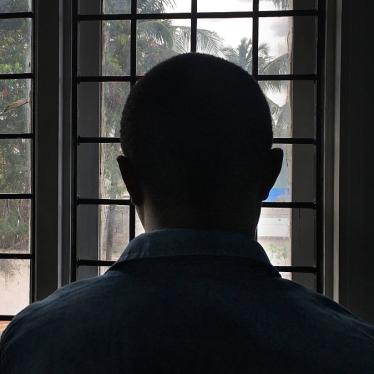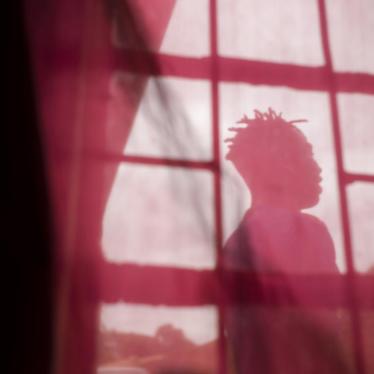(Bujumbura) - Burundi's parliament should respect its human rights obligations and reject a pending criminal code revision that would outlaw consensual homosexual conduct, Human Rights Watch said today in a letter to President Peter Nkurunziza and the members of the Burundian Senate.
Legislators have corrected other problematic aspects of the proposed criminal code before the Senate, abolishing the death penalty and making torture, genocide, war crimes, and crimes against humanity punishable offenses. However, they have so far not amended a provision that would impose penalties of up to two years in prison for consensual homosexual conduct. Human Rights Watch said the provision would violate the African Charter on Human and People's Rights and the International Covenant on Civil and Political Rights (ICCPR), to which Burundi is a party. The revised draft is scheduled for a vote in plenary session of the Senate on February 17, 2009.
"We are deeply discouraged that the Senate is on the verge of passing a provision that violates basic human rights," said Scott Long, director of the Lesbian, Gay, Bisexual and Transgender Rights Program at Human Rights Watch. "Senators should not yield to pressure to enshrine injustice into law."
The new criminal code was drafted over a period of nearly two years, with the assistance of Burundian and international legal experts, after elections in 2005 restored a democratic system in Burundi and required the revision of legal texts. However, in October 2008, at the end of the discussion on the bill, the Human Rights and Justice Commission in the National Assembly inserted a provision criminalizing "anyone who engages in sexual relations with a person of the same sex." The provision would be the first so-called "sodomy law" in the country's history.
The bill was hurriedly approved by the National Assembly on November 22, with virtually no time for members of parliament to debate the provision.
At that time, Human Rights Watch, other national and international human rights organizations, Burundian public health officials, the Burundian Catholic Church, diplomatic missions, and others called upon the Senate to amend the bill.
On February 6, the Senate Justice Commission completed a series of amendments to the National Assembly version, but it did not amend the provision on homosexuality. A number of senators told Human Rights Watch that they were personally opposed to the provision, but were wavering under pressure from certain political figures and religious groups.
To submit to such pressure would be to sideline Burundians' basic human rights as well as the country's treaty obligations. According to the United Nations Human Rights Committee's 1994 ruling in the case Toonen v. Australia, laws criminalizing consensual homosexual conduct between adults violate the right to privacy as protected by the ICCPR. Both the ICCPR and the African Charter on Human and People's Rights prohibit discrimination on the grounds of "any status" (Article 26 of the ICCPR, Article 2 of the ACHPR).
Burundi's own Constitution guarantees the right to privacy (Article 28) and the right to be free from discrimination (Article 17). Under Article 19, rights protected by the international conventions to which Burundi is a party, including the ICCPR, are integrated into Burundian law and recognized as "fundamental."
In addition, the United Nations Working Group on Arbitrary Detention has held that arrests for consensual homosexual conduct are, by definition, human rights violations.
If the Senate passes the law, the president can challenge it by demanding a second reading or submitting it to the Constitutional Court for evaluation.
"The criminal code should be a vehicle for protecting the vulnerable, not entrenching prejudice," said Long. "The Senate and the president must carry out their duties to ensure that Burundian law is consistent with the country's treaty obligations and does not violate fundamental human rights."





